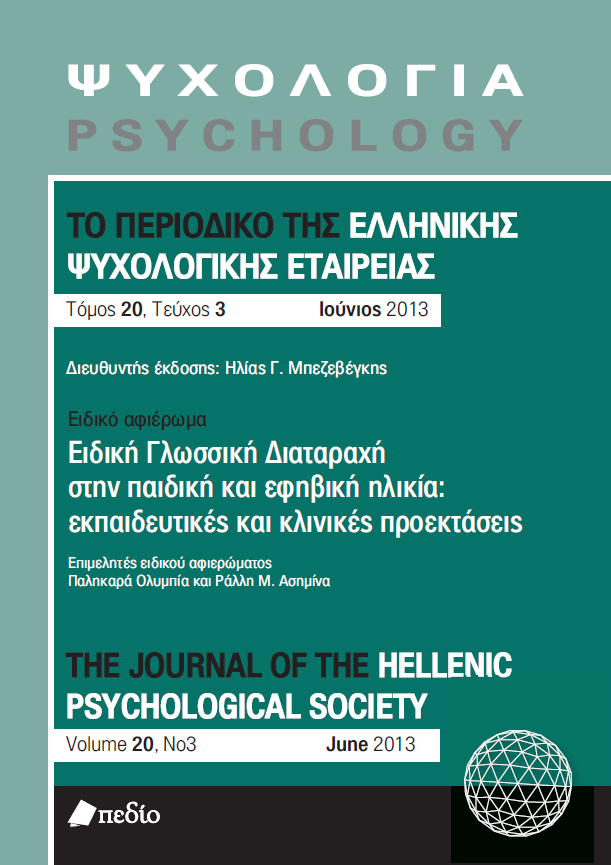Pragmatic abilities of high-functioning Greek-speaking children with autism

Abstract
This paper reports on the findings of the pragmatic abilities of Greek-speaking children with autism spectrum disorders (ASD). Twenty high functioning children with ASD and their typically developing age and vocabulary controls were administered a pragmatics task in the context of a larger study targeting the grammar of Greek-speaking children with
autism. The task was based on the Diagnostic Evaluation of Language Variation (DELV) and assessed the children’s abilities in communicative role taking, narrative, and question asking. The children with ASD
showed an uneven profile in their pragmatic abilities. The two groups did not differ in communicative role taking and question asking. However, the children with ASD had difficulties on the narrative task, and more
specifically, on the items assessing reference contrast and temporal links. Yet, they performed similarly on the mental state representations and the false beliefs items. Despite their good performance on mental states and false beliefs, the ASD children’s lower performance on reference contrast can be interpreted via Theory of Mind deficits if we assume that the former involve an additional level of complexity; namely, quantifying the amount of information available to the listener. Lower performance on temporal links is in line with the ASD children’s attested difficulties in organizing events into a coherent gist. Their overall profile, and, in particular, the dissociation between the different sections of the task, does not support single deficit accounts. It rather indicates that the deficits of individuals with ASD stem from distinct deficits in core cognitive processes (Happé & Frith, 2006).
Article Details
- How to Cite
-
Marinis, T., Terzi, A., Kotsopoulou, A., & Francis, K. (2020). Pragmatic abilities of high-functioning Greek-speaking children with autism. Psychology: The Journal of the Hellenic Psychological Society, 20(3), 321–337. https://doi.org/10.12681/psy_hps.23544
- Issue
- Vol. 20 No. 3 (2013)
- Section
- SPECIAL SECTION

This work is licensed under a Creative Commons Attribution-ShareAlike 4.0 International License.
The journal PSYCHOLOGY adopts a Platinum open-access policy. Submission, processing or publication costs are waived by the Hellenic Psychological Society. Papers published in the journal PSYCHOLOGY are licensed under a 'Creative Commons Attribution-ShareAlike 4.0 International' licence. The authors reserve the copyright of their work and grant the journal the right of its first publication. Third-party licensees are allowed to use the published paper immediately after publication as they wish, provided they retain the defined by the license copyright formalities, regarding the reference to its author(s) and its initial publication in the journal PSYCHOLOGY. Moreover, any adjusted work should be shared under the same reuse rights, so with the same CC license.


